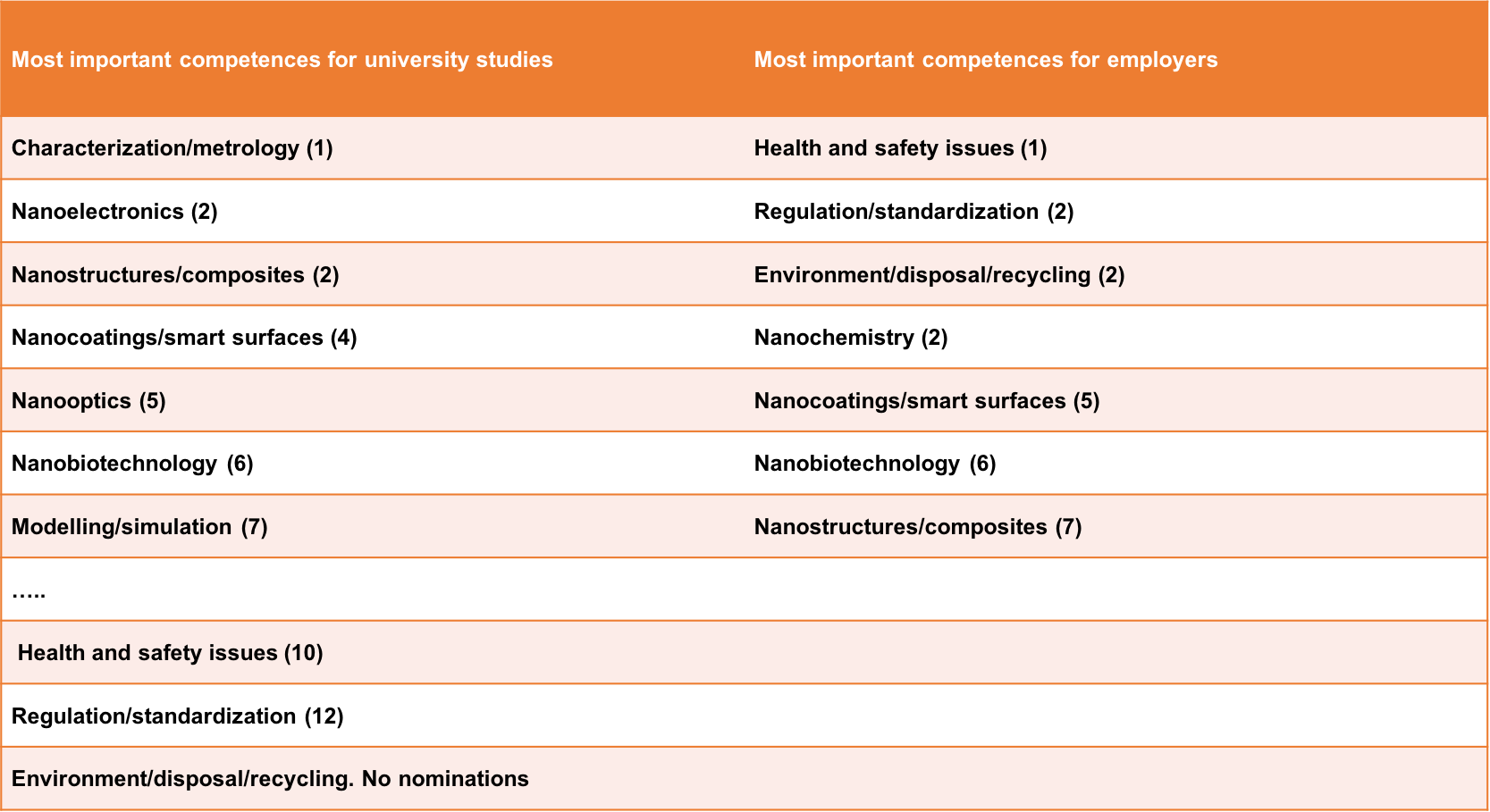Nanotechnology is a future labour market, since this branch of industry is quickly growing internationally. In 2013, a total of 1.100 companies in Germany applied nanotechnology in research and development, or were active in marketing commercial goods and services based on nanotechnology [1]. The development and production of nanomaterials is only a part of the picture. Many industrial branches use nanomaterials to manufacture products, from nail polish to cars. As far as nano-specific become important, experts who are competent in this area have to come into play.
What are the training paths for a career in this field?

A special education or dedicated university studies are particularly useful if the goal is a career in research, development or industrial production. Many universities and higher schools for applied sciences offer within study programs for disciplines in natural sciences and engineering specific focus or program core in nanotechnology, which can be found in the individual course of instruction. Up-to-date information about study offers with “nano” topics are available for Germany from the Federal Ministry of Education and Research via the overview page „Nanotechnologie studieren” (in German only) as well as via a specific competence map „Kompetenzkarte” for education and training in nanotechnology. The German Association of Nanotechnology provides an overview as well. Similar compendia exist for Austria and Switzerland. Information sources on education for the US are provided by ASTM. Education pathways in nanotechnology integrate chemistry, physics, materials science, engineering and biology. Which training is the most favorable for a future professional activity will depend on the specific task.
The EU funded project NanoEIS has analysed, which competences are needed by employers in the nanotechnology industry, when recruiting experts with suitable skills. Interestingly, among the most desired skills are competences in health, safety, regulation and the environment. The most important competences for universities were ranked according to how often they were mentioned as important part of study programs in a survey of European universities. The most important competences for employers were ranked according to the results of a survey of European companies which skills persons should have that are to be recruited in five years.
Industry is therefore aware of these issues and strives actively to manage upcoming problems. These aspects are of course important for other materials as well, like chemical substances. Work place safety, legal provisions, environmental impact, etc. are overarching issues. Due to the specific properties of nanomaterials however, special questions arise for which a corresponding knowledge is required in the profession. The job market is not limited to professions that handle nanomaterials directly. Regulation of materials needs a large number of experts, at national and European agencies as well as in industry.
Another aspect is patenting of nanoproducts, an area that is in active development. Completely different studies can lead into this field, for example legal and management studies, so that more and more graduates from other professional fields and from different angles of view deal with nanotechnology. A special “nano” study program is interesting, but it is not a condition in order to work in this field.

Graduates with a background in nanotechnology can find employment outside of the industrial sector. Authorities with tasks such as authorization, safety, material testing, standardisation and regulation require appropriate expertise as well. Many organisations and associations are concerned with nanomaterials from different perspectives. Politics and media need for scientific issues employees with a really broad knowledge. A background in the nano-sciences is here useful, since they are exceptionally interdisciplinary. The breadth of the education pathways is characteristic for the entire field, which contributes to make it attractive for considering job options. Under LINKS, further websites and information sources about nanotechnology can be found.
Literature
- nano.DE-Report 2013 Status quo der Nanotechnologie in Deutschland Herausgeber Bundesministerium für Bildung und Forschung